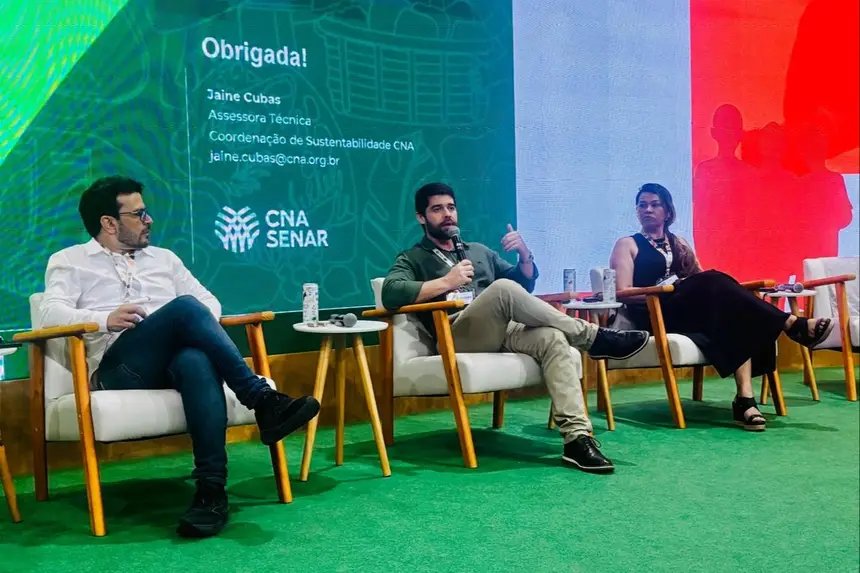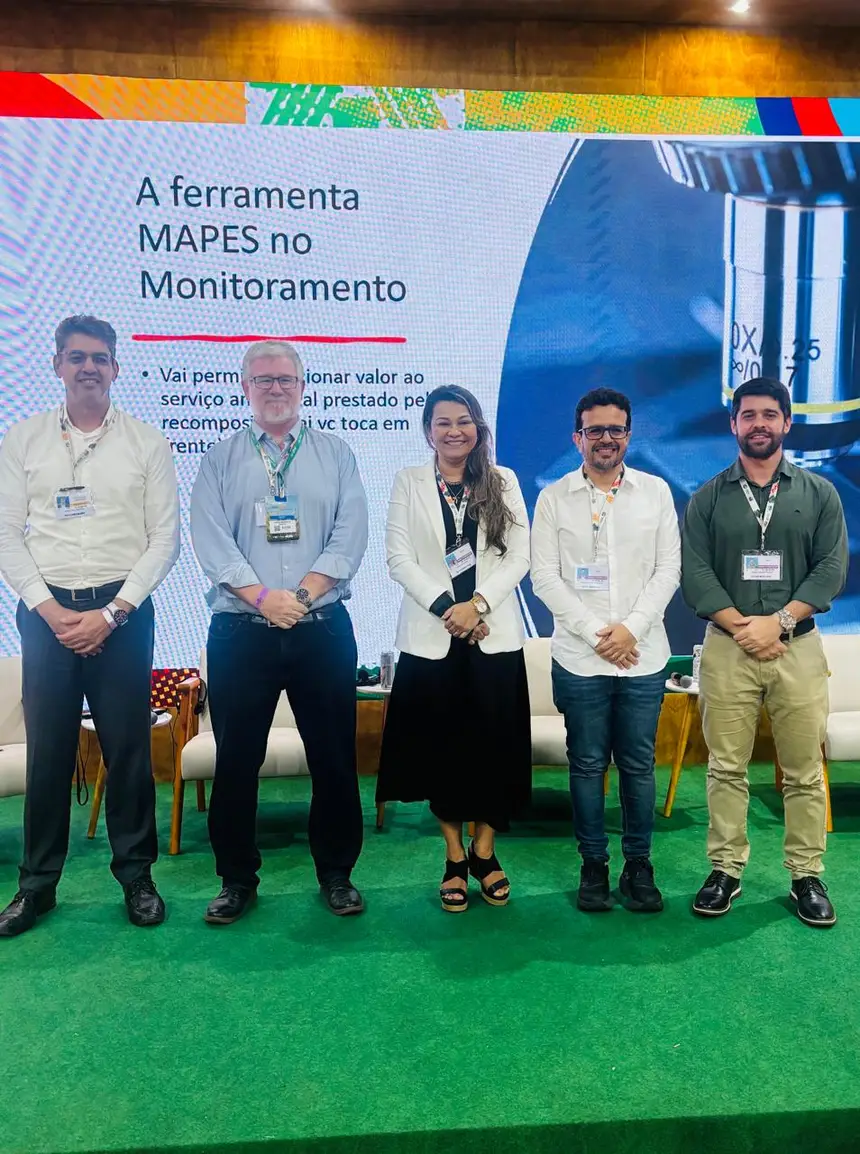Ideflor-Bio highlights the role of Environmental Protection Quotas in a CNA panel
The Institute addressed the contribution of the Quotas, an environmental regularization mechanism for rural properties with legal reserve liabilities, to integrate conservation and sustainable production
Environmental regularization was one of the central themes of the debate promoted by the Confederation of Agriculture and Livestock of Brazil (CNA) this Wednesday (19) at the Brazil Pavilion in the Blue Zone of COP30. With the theme "Environmental Regularization: Scaling the Rectification of the Rural Registry in Brazil," the panel brought together experts from different public and private institutions to discuss advances, challenges, and opportunities in the implementation of the Rural Environmental Registry (CAR).
Representing the Institute of Forest Development and Biodiversity of Pará (Ideflor-Bio), technical advisor Thiago Valente participated as a panelist, highlighting the strategic contribution of the Environmental Protection Quotas (CPAs), an environmental regularization mechanism for rural properties with legal reserve liabilities, consolidated until July 2008, to integrate conservation and sustainable production.
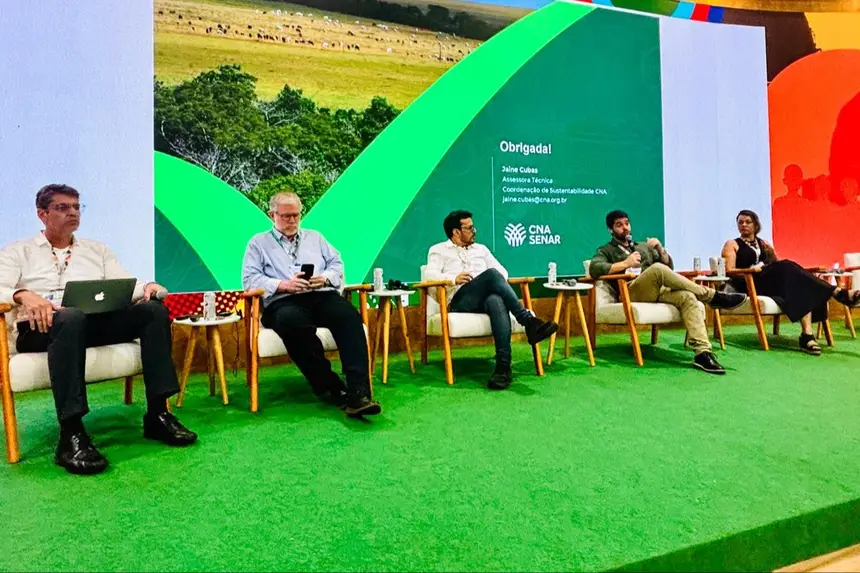
Moderated by Nelson Ananias Filho, the meeting also included the participation of Rodolpho Zahluth Bastos, deputy secretary of Semas (State Secretariat for the Environment, Climate and Sustainability); Maximira Costa (Semas/PA) and Jorge Enoch from Embrapa (Brazilian Agricultural Research Corporation).
Mosaic - The discussion addressed the complexity of environmental regularization in Brazil, especially in the Amazon, where different land categories, territories of traditional peoples and communities, conservation units, and rural properties of various sizes coexist. This mosaic, as pointed out by the participants, makes the implementation of Law No. 12,651/2012 more challenging, which depends not only on registration in the CAR but, above all, on the rectification and validation of the declared information.
During the panel, Thiago Valente emphasized that the adoption of innovative instruments has been fundamental to accelerate regularization and ensure concrete benefits for rural producers. He highlighted initiatives such as regularization mutirões, which assist family farmers, small producers, and traditional communities in overcoming technical and financial barriers in rectifying their registrations. "These actions have shown very effective results, allowing for greater access to public policies, rural credit, and funding programs," he reinforced.
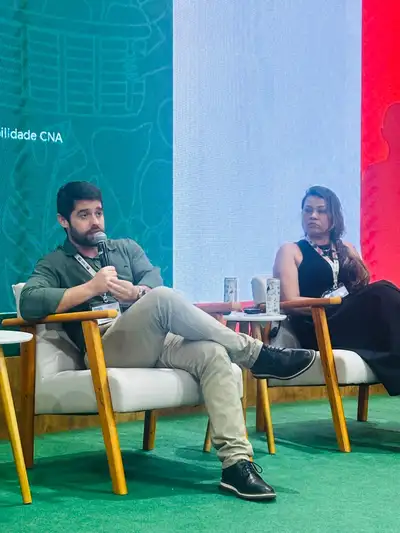
Link between production and conservation - Thiago Valente focused especially on the role of the CPAs as a mechanism capable of concretely connecting nature conservation and sustainable production. "The tone of my speech was very much around the role that the CPA plays as a link between sustainable production and nature conservation," he said, explaining that this instrument, conceived 20 years ago within the Ecological-Economic Macro-Zoning of Pará, reached sufficient institutional maturity in 2025 for its regulation and effective implementation in the State.
The advisor also highlighted that Pará has already met almost all the goals for the creation of protected areas outlined in the macro-zoning, which qualified the State to regulate the CPAs and consolidate the use of this instrument. According to him, the policy breaks with the logic of "environmental proselytism" by presenting rural producers with a mechanism that adds value to protected areas and offers real benefits. "The producer can compensate for their environmental liability prior to 2008 by acquiring quotas. Thus, they begin to see biodiversity protection as something that brings a concrete benefit," he added.
Strengthening conservation units - Thiago Valente also emphasized the destination of resources from the CPAs directed towards the maintenance of the State System of Conservation Units (Seuc). He recalled that the Pará model allows conservation units to act as areas suitable for compensating legal reserves, creating a direct interconnection between the conservation unit system and the state environmental regularization policy. "This strengthens the financial sustainability of the units and reinforces the role of the State in environmental management," he informed.
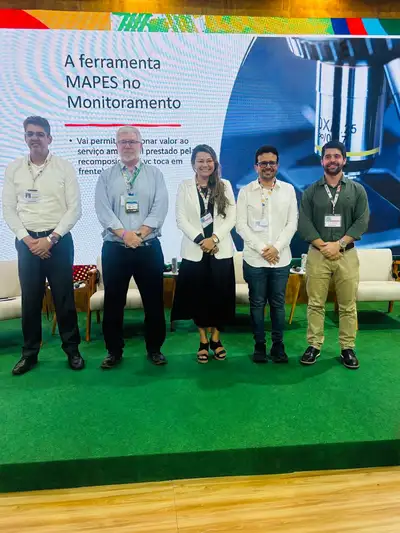
For the representative of Ideflor-Bio, the presence of the Institute in a panel on environmental regularization symbolizes a paradigm shift. "A few years ago, Ideflor-Bio would never have been part of a panel discussing environmental regularization. This is concrete proof that the Environmental Protection Quota creates this strong link between conservation and production," he stated.
According to him, in Pará the idea that production goes hand in hand with environmental protection has ceased to be mere discourse and has become reality. "The CPA is one of the instruments that transformed this narrative into practice. This shows that we are advancing towards an environmental policy that dialogues, integrates, and generates results," concluded Thiago Valente.


